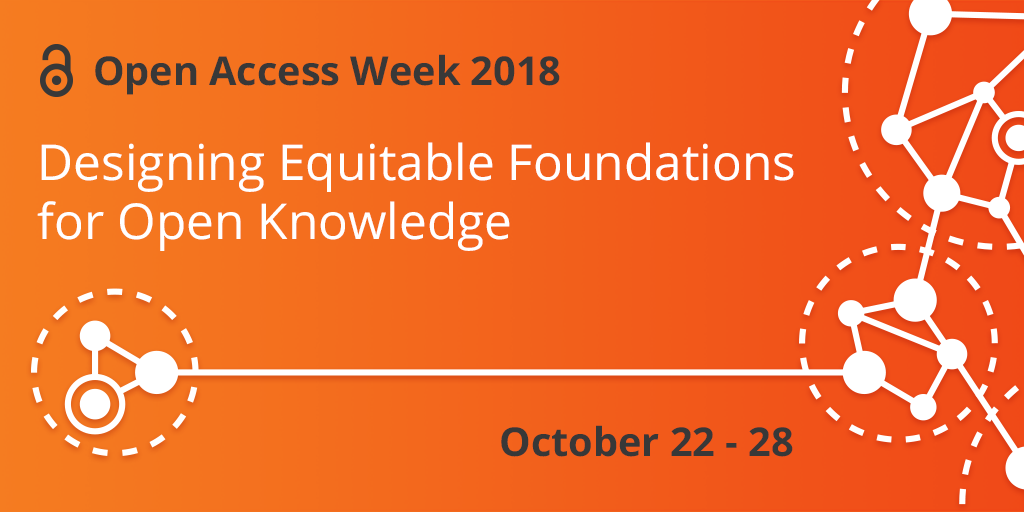Happy Open Access Week!
This year’s theme for Open Access Week, which we are celebrating from October 22nd – 28th, 2018, is “Designing Equitable Foundations for Open Knowledge.” It’s a mouthful, so let’s work through what this means and more importantly, what it means for us here in the Tufts community.
As Nick Shockey, founding Director of the Right to Research Coalition, among other things, noted in his blog post about it, “This year’s theme reflects a scholarly system in transition.” There is great opportunity and already great evidence of this transition incorporating open access as the default, not the outlier, in publishing. Nevertheless, we can further leverage the opportunities of transition to intentionally design new systems that are more equitable, more inclusive, and with less bias.
So perhaps you’re thinking that you are not in a position to be designing new scholarly systems. What’s your role? If you are someone who creates scholarly literature, be critical of where you publish your manuscripts. Consider whether you are supporting systems that promote access beyond just to the privileged, affiliated with well-endowed institutions, but also scholars and practitioners, many of whom live internationally, that could benefit from your work, provide diverse perspectives, and innovate in ways beyond your initial scope. You, as the creator of content, can take control of how well that content is disseminated and utilized, and ultimately how impactful it can be.
There are traditional measures that are often used to evaluate journals and guide someone in deciding where to publish. Some are quantitative like Journal Impact Factors, or other research impact metrics. Some are more qualitative, such as recommendations from peers or venerated colleagues. I challenge you to also assess a journal’s value, prestige, and appropriateness based on its equity as a system. Whose voices are prioritized? Who is excluded? How are some scholarship decisions the journal makes perpetuating bias?
Do these questions spark some questions for yourself? Ask Us! And, Happy Open Access Week!
Post contributed by Judy Rabinowitz
